We don’t have a plan B, we must strive for a greener, brighter future – the key message of the gathering
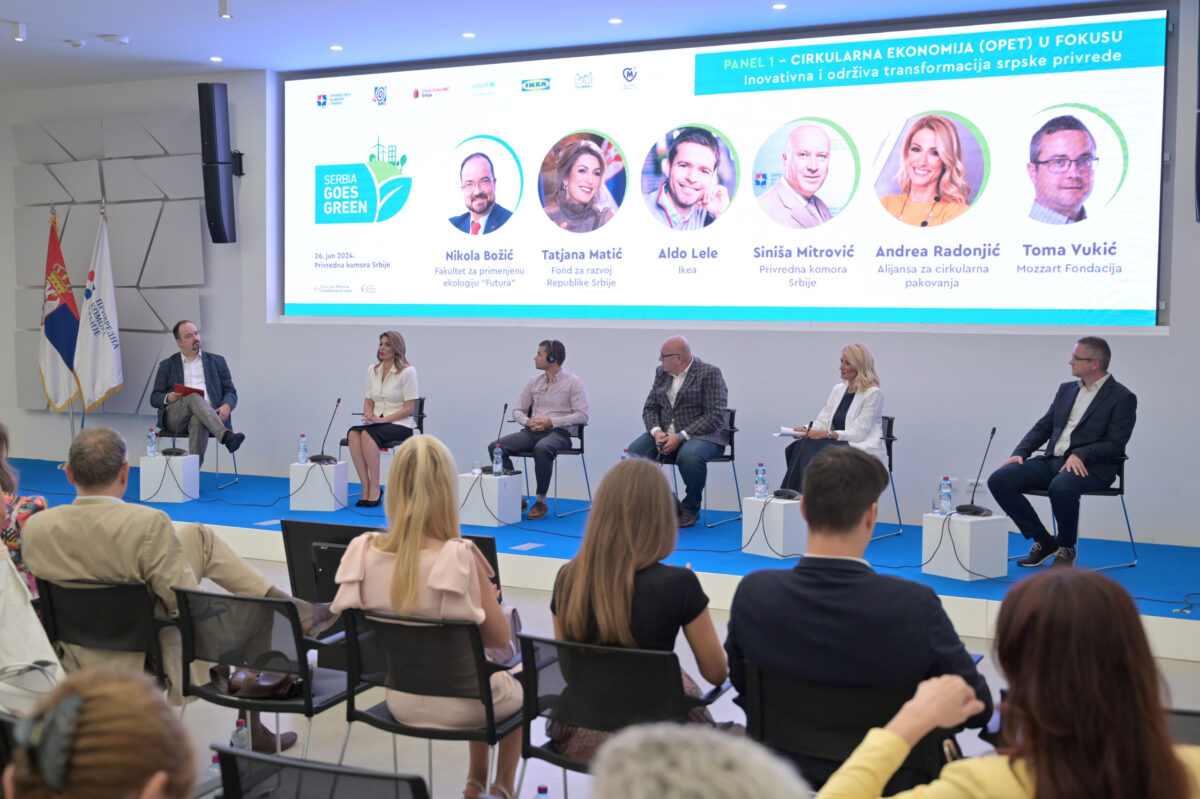 On the premises of the Chamber of Commerce of Serbia in Belgrade, the SERBIA GOES GREEN conference was held, which is part of the traditional annual conferences organized by Color Media Communications. The conference has been taking place since 2016 and is dedicated to environmental protection and the preservation of the nature that surrounds us. Besides the Chamber of Commerce of Serbia, the realization of the conference was also supported by UNICEF Serbia, Elektroprivreda Srbije, Coca-Cola HBC Serbia, IKEA, the Alliance for Circular Packaging, and the Mozzart Foundation.
On the premises of the Chamber of Commerce of Serbia in Belgrade, the SERBIA GOES GREEN conference was held, which is part of the traditional annual conferences organized by Color Media Communications. The conference has been taking place since 2016 and is dedicated to environmental protection and the preservation of the nature that surrounds us. Besides the Chamber of Commerce of Serbia, the realization of the conference was also supported by UNICEF Serbia, Elektroprivreda Srbije, Coca-Cola HBC Serbia, IKEA, the Alliance for Circular Packaging, and the Mozzart Foundation.
At the opening of the conference, the Minister of Mining and Energy, Dubravka Đedović Handanović, spoke and emphasized that on the path to green transition and greater sustainability of the energy system, we must not lose sight of the main task of the energy system, which is to ensure that citizens and the economy always have a secure and reliable supply of electricity.
The European Union has invested as much as 582 million euros in environmental protection in Serbia
“One of the biggest supply interruptions in Europe in the last 20 years, which occurred last week in our vicinity, showed that supply security remains a priority and the main task not only for Serbia but also for the energy systems in the region, which need to be even stronger and more secure. Regional projects that aim for greater connectivity in the transmission network play an especially important role in this, considering that Serbia has eight interconnections with neighbors, which gives it a special position in Europe.”
Serbia has rightly insisted that the integration of new capacities from renewable energy sources must be accompanied by proportional investments in the transmission and distribution network. This has been enabled primarily by amendments to the Law on the Use of Renewable Energy Sources. In the coming period, the focus will be on investments, primarily in implementing the strategically important RHE Bistrica project,” emphasized Handanović Đedović.
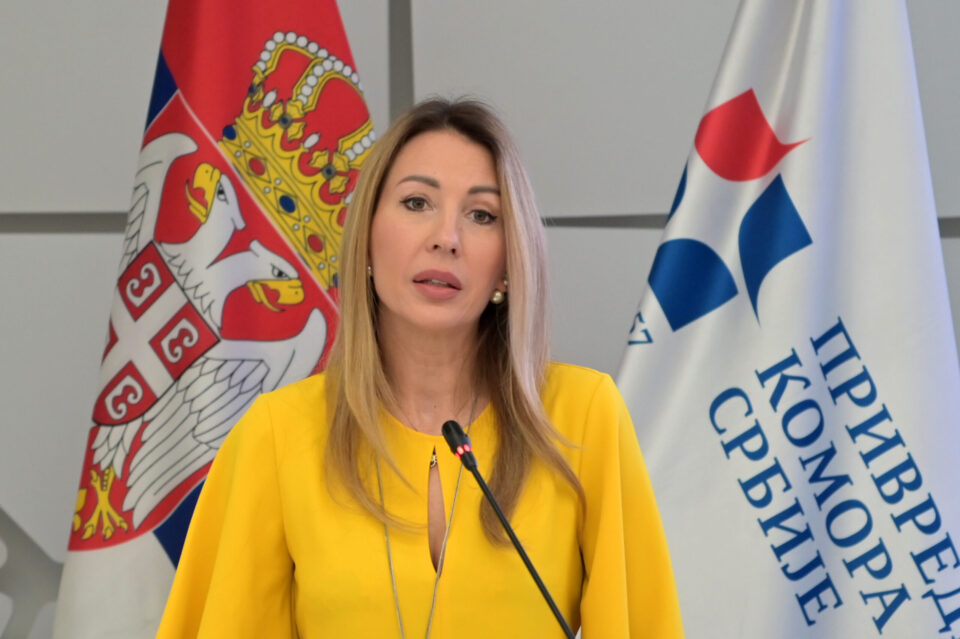 Mathilde Mordt, the UN Resident Coordinator in Serbia, noted that “Serbia Goes Green” is not only an ecological imperative but also a huge economic opportunity for the country, which is expected to double its renewable energy production and increase resource efficiency while creating new jobs.
Mathilde Mordt, the UN Resident Coordinator in Serbia, noted that “Serbia Goes Green” is not only an ecological imperative but also a huge economic opportunity for the country, which is expected to double its renewable energy production and increase resource efficiency while creating new jobs.
“The path to a green future must be inclusive and fair, ensuring that no one is left behind while supporting the most vulnerable. The United Nations is proud to support Serbia in its efforts, which in 2023 alone reached over 880,000 people through initiatives encompassing clean energy, air quality, climate change adaptation, and community resilience,” highlighted Mordt.
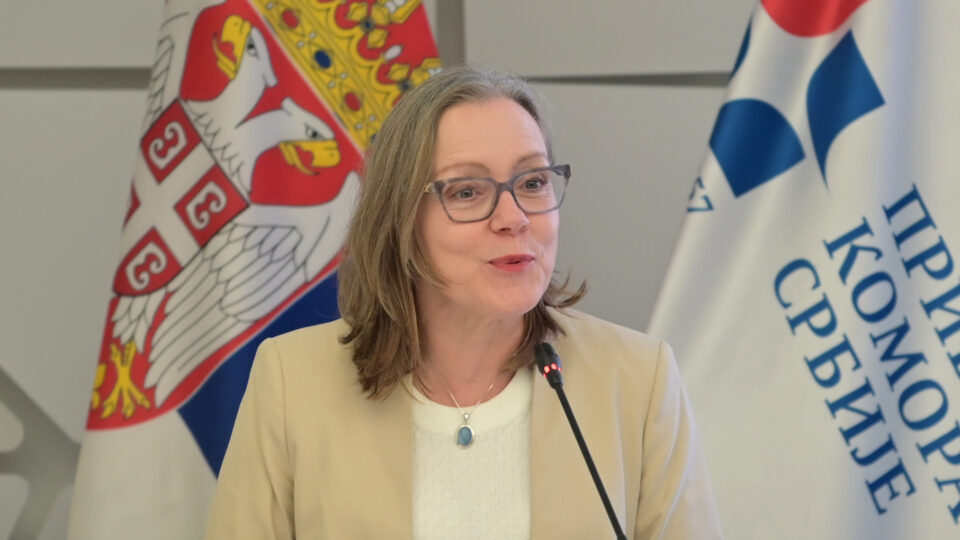 H.E. Emanuel Giaufret, Head of the Delegation and EU Ambassador to Serbia presented the EU’s investments in environmental protection in Serbia and future support plans for the country at the conference.
H.E. Emanuel Giaufret, Head of the Delegation and EU Ambassador to Serbia presented the EU’s investments in environmental protection in Serbia and future support plans for the country at the conference.
“The European Union has invested as much as 582 million euros in environmental protection in Serbia. And we will not stop. Looking ahead, Serbia should take full advantage of the new EU growth plan for the Western Balkans. Specifically, through our Reform and Growth Fund for the Western Balkans, we aim to accelerate fundamental reforms and the integration of the regional market with the EU single market, bringing 6 billion euros to the Western Balkans by 2027. For Serbia, the Fund will, among other things, support the energy transition and lead the country towards a more resilient and cleaner economy. This is the future of Serbia, and the EU will continue to be fully committed to supporting Serbia and its citizens. The hard work ahead includes legislation, implementation, investments, and dialogue as key activities for tomorrow. Cleaner energy means a brighter future.”
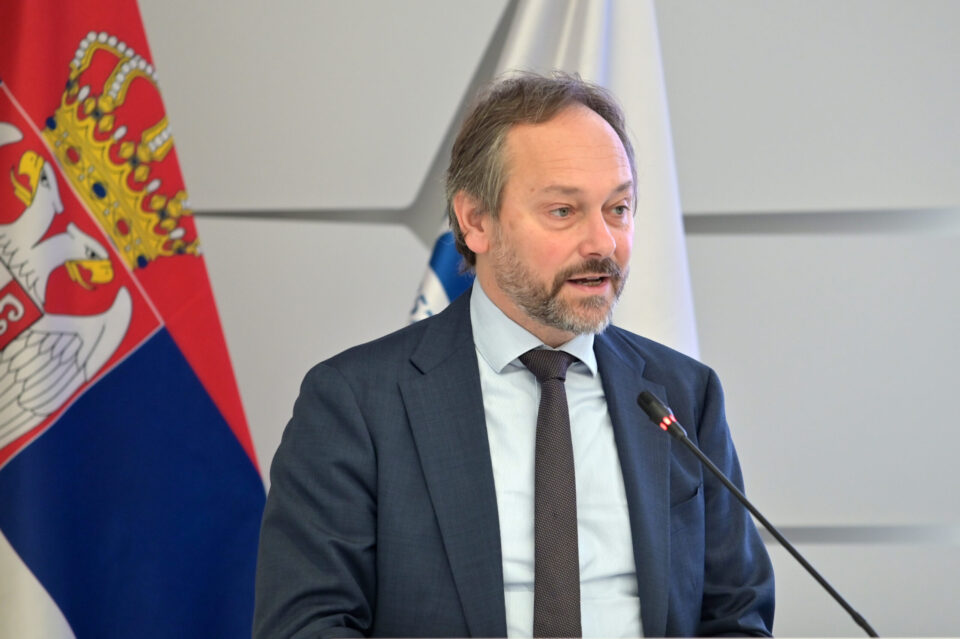 Siniša Mitrović, Head of the Circular Economy Center of the Serbian Chamber of Commerce, told the attendees that when it comes to the green transition, concrete progress has been made. At the same time, there is a threat of destabilizing this model due to too much noise and too few active solutions. It is very important to view the green transition as one of the most important drivers of Serbia’s GDP.
Siniša Mitrović, Head of the Circular Economy Center of the Serbian Chamber of Commerce, told the attendees that when it comes to the green transition, concrete progress has been made. At the same time, there is a threat of destabilizing this model due to too much noise and too few active solutions. It is very important to view the green transition as one of the most important drivers of Serbia’s GDP.
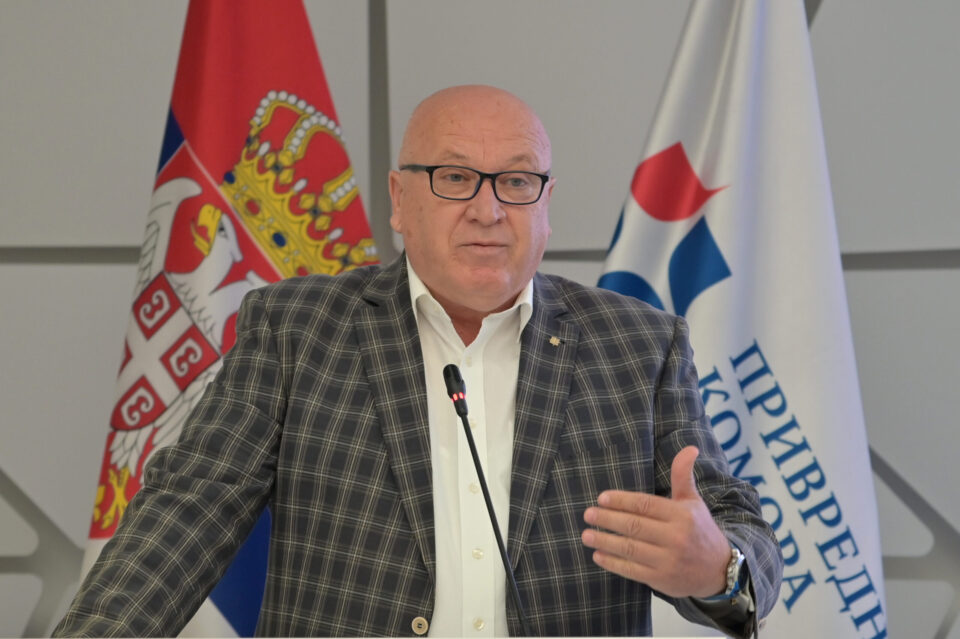 Robert Čoban, the organizer of the conference, greeted the attendees and emphasized that for the eighth year in a row at the Serbia Goes Green conference, we are discussing topics that greatly interest and often divide the domestic public. “Ministers, foreign diplomats, scientists, media representatives, business associations, and companies exchange views on environmental protection and sustainable business practices. How much we can all do to protect the environment in our immediate surroundings and save planet Earth, our common home,” noted Čoban.
Robert Čoban, the organizer of the conference, greeted the attendees and emphasized that for the eighth year in a row at the Serbia Goes Green conference, we are discussing topics that greatly interest and often divide the domestic public. “Ministers, foreign diplomats, scientists, media representatives, business associations, and companies exchange views on environmental protection and sustainable business practices. How much we can all do to protect the environment in our immediate surroundings and save planet Earth, our common home,” noted Čoban.
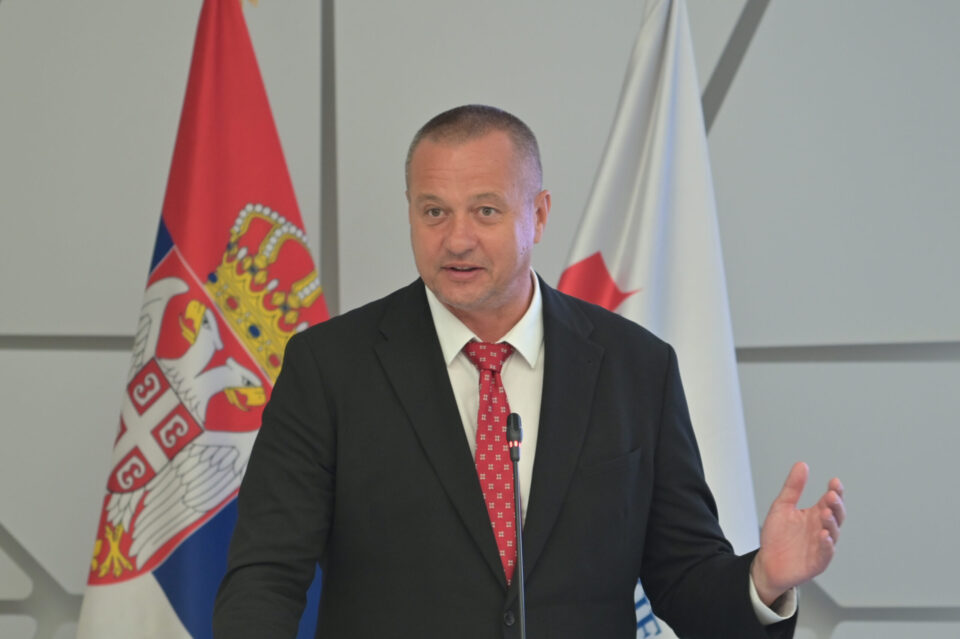 After the opening remarks, panel discussions followed. In the first panel titled “Circular Economy (Again) in Focus – Innovative and Sustainable Transformation of the Serbian Economy,” the speakers were: Tatjana Matić, Director of the Development Fund of the Republic of Serbia; Aldo Lele, Sustainability Manager at IKEA; Andrea Radonjić from the Alliance for Circular Packaging; Siniša Mitrović from the Serbian Chamber of Commerce; and Toma Vukić from the Mozzart Foundation. The panel was moderated by Nikola Božić from the Faculty of Applied Ecology Futura.
After the opening remarks, panel discussions followed. In the first panel titled “Circular Economy (Again) in Focus – Innovative and Sustainable Transformation of the Serbian Economy,” the speakers were: Tatjana Matić, Director of the Development Fund of the Republic of Serbia; Aldo Lele, Sustainability Manager at IKEA; Andrea Radonjić from the Alliance for Circular Packaging; Siniša Mitrović from the Serbian Chamber of Commerce; and Toma Vukić from the Mozzart Foundation. The panel was moderated by Nikola Božić from the Faculty of Applied Ecology Futura.
Young people are ready to take concrete actions and reach out to state institutions to support their ideas and actions
Aldo Lele, Sustainability Manager at IKEA, spoke about the activities and commitment that IKEA has towards sustainability.
“Sustainability at IKEA is an integral part of our business and key to our further growth and realization of our vision of a better everyday life for many people. Every day, we raise awareness among colleagues and in the local community about environmental challenges and the impact of the environment on our health and quality of life. Our goal is to halve greenhouse gas emissions by 2030 and become a circular company that uses only renewable and recycled materials. We are intensively working on reducing annual water and energy consumption and increasing waste recycling. What is good for the planet and people is also good for our long-term growth,” said Lele.
Andrea Radonjić from the Alliance for Circular Packaging emphasized that we need to talk more about the circular economy and find ways to ensure that all materials for food and beverage packaging (glass, plastic, multilayer cardboard packaging, cardboard, and paper packaging, as well as metal packaging) are reused to close the entire loop of maximum resource utilization, which are increasingly scarce.
Last year, the Mozzart Foundation invested more than 23,000,000 dinars in various ecological actions and initiatives, leaving its “green” mark from Vojvodina to Priboj.
Toma Vukić from the Mozzart Foundation emphasized, “This year, we organized a competition titled ‘Save Electricity to Make Humanity Worth More,’ with the support of the Ministry of Mining and Energy. In addition to valuable prizes, the initiative’s humanitarian segment was particularly significant, in which the Mozzart Foundation donated funds for the construction of a solar power plant at the First Elementary School King Peter II in Užice. Last year, a solar power plant was also installed at the Technical School in Valjevo.”
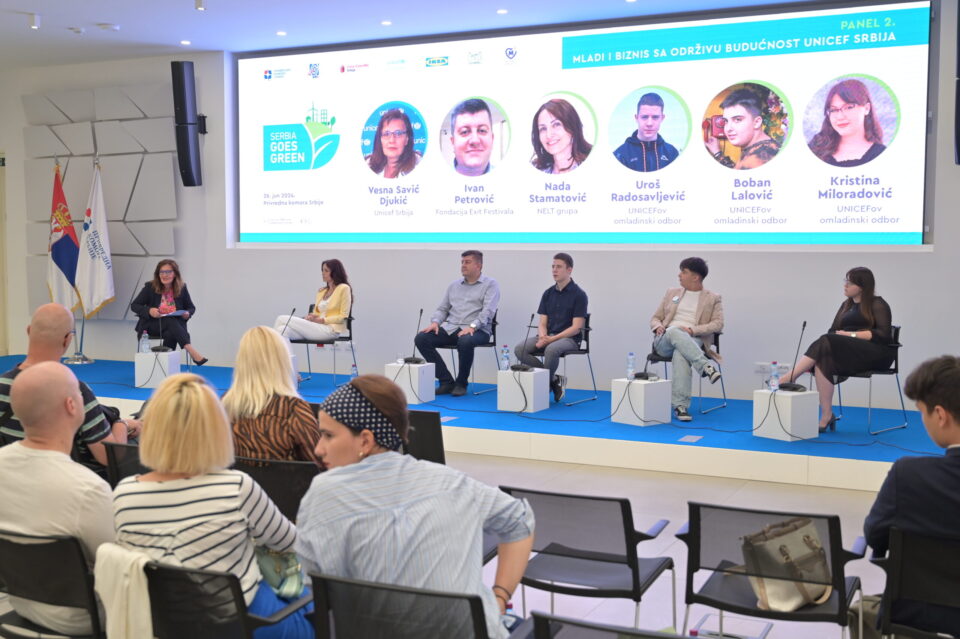 In the second panel titled “Youth and Business for a Sustainable Future,” the participants were Ivan Petrović, President of the Board of the Exit Festival Foundation; Nada Stamatović, Sustainable Business Expert at the NELT Group; and representatives of UNICEF’s youth response team Uroš Radosavljević, Boban Lalović, and Kristina Miloradović. The panel was moderated by Vesna Savić Đukić from UNICEF Serbia.
In the second panel titled “Youth and Business for a Sustainable Future,” the participants were Ivan Petrović, President of the Board of the Exit Festival Foundation; Nada Stamatović, Sustainable Business Expert at the NELT Group; and representatives of UNICEF’s youth response team Uroš Radosavljević, Boban Lalović, and Kristina Miloradović. The panel was moderated by Vesna Savić Đukić from UNICEF Serbia.
Globally and in Serbia, UNICEF empowers young people to voice their concerns and find ways to start addressing them, with an increasing focus on a sustainable future. They help amplify their voices and connect them with relevant institutions that can support them. Young people are ready to take concrete actions and reach out to state institutions to support their ideas and actions. They advocate for being part of the solution and set a good example for others through their sustainable actions. Young people are eager and seek a channel through which their voices can be heard. This is why UNICEF strives to involve young people in all legislative processes and discussions, so they can contribute in the right places.